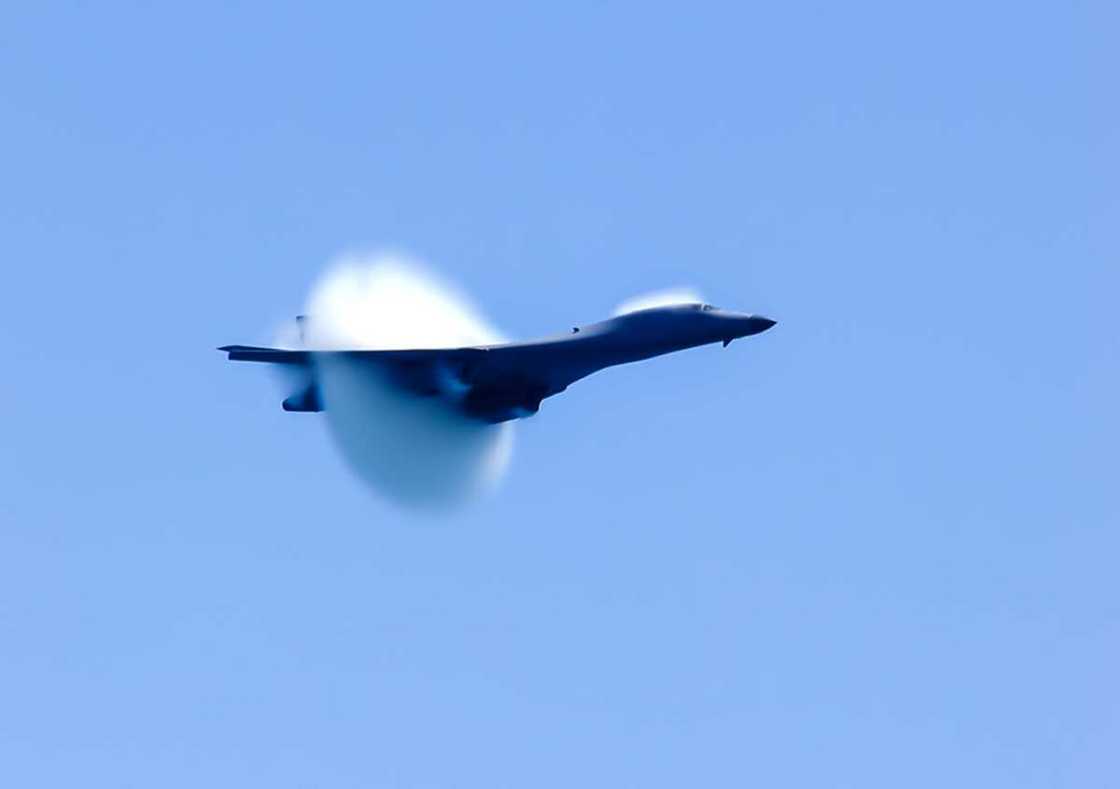How fast is Mach 10 in kilometres and miles per hour?
You have probably heard about objects moving at supersonic speeds, but do you know what it means? With the need to cover long distances over a short time, scientists have continually improved the speeds of different vessels. There are various units for measuring how fast objects move, but Mach compares their speed to the speed of sound. How fast is Mach 10?

Source: Getty Images
Have you ever wondered how fast sound travels? Undoubtedly, it travels fast, but some objects move faster than the velocity of sound. Mach, as a unit of measurement for objects’ speed compared to sound speed, was first used in 1887. How fast is Mach 10, and is there a speed higher than that?
What does Mach mean?
It is a unit of speed measurements usually expressed as a ratio of an object’s speed to the speed of sound. However, note that the velocity of sound is affected by factors such as air temperature, air density, and other atmospheric conditions prevailing in an environment.
Mach 1 is equivalent to the velocity of sound, which is approximately 767 mph (1,235 km/h). Scientists have used different terms to describe objects’ speed in relation to the speed of sound. Here are some words describing different categories of how fast objects move:
- Subsonic: less than Mach 0.8 (below 609 mph or 980 km/h)
- Transonic: Mach 0.8–1.2 (609–914 mph or 980–1,470 km/h)
- Sonic: equal to Mach 1 (767 mph or 1,235 km/h)
- Supersonic: Mach 1.2–5 (915–3,806 mph or 1,470–6,125 km/h)
- Hypersonic: Mach 5–10 (3,806–7,680 mph or 6,125–12,360 km/h)
- High-hypersonic: Mach 10–25 (7,680–19,031 mph or 12,360–30,627 km/h)
Origin of the term Mach
Where did the term come from? The word was derived from the name of an Austrian physicist and philosopher, Ernst Mach. Ernst made significant contributions to science, including measuring the velocity of objects moving faster than sound in 1887. Jakob Ackeret, a Swiss aeronautical professor, suggested the name in honour of the physicist.

Source: Getty Images
How fast is Mach 10?
What is Mach 10 speed? It is almost equivalent to 7,680 miles per hour, ten times the speed of sound. When translated to kilometres per hour, it is 12,360. The velocity may vary slightly depending on the prevailing atmospheric conditions.
Calculation of Mach number
The number is calculated by dividing an object’s speed by the speed of sound in the medium. Note that both speeds should be expressed in the same units of velocity. For instance, if you opt to use kilometres per hour, it should be uniform for the object’s speed and the speed of sound.
What is a sonic boom?
It is a shock wave sound produced when a body moves through the air at a velocity greater than the speed of sound. It is sometimes referred to as breaking the sound barrier.
When an object’s velocity approaches the speed of sound, there is an increase in aerodynamic drag, which is a difficult-to-break barrier. When the barrier is overcome, a sonic boom occurs.

Source: Getty Images
Frequently asked questions
- What does a Mach number mean? It refers to an object's velocity compared to the velocity of sound.
- Why is it called Mach? The term was derived from Austrian physicist and philosopher Ernst Mach. He tested objects' speed relative to sound speed in 1887.
- What is Mach 10 in mph? It translates to approximately 7,680 miles per hour.
- How fast is Mach 10 in km/h? It is 12,360 kilometres per hour.
- How fast is Mach 10 around the world? Travelling around the world at that velocity would take approximately five hours.
- When should you use Mach 10 to refer to how fast an object moves? It should be used in describing an object moving at extremely high velocity, ten times greater than the speed of sound. The term is primarily used by aeronautical scientists.
- Has Mach 10 ever been reached? According to Math Works, the velocity was attained on 16 November 2004, when NASA launched the X-43A into the atmosphere.
How fast is Mach 10? It indicates a velocity ten times faster than the speed of sound, and it equals to about 7,680 mph, or 12,360 km/h. Mach has been used to measure how fast objects move since 1887. The highest recorded is Mach 10 in November 2004 by a NASA-launched vessel.
Legit.ng recently published a list of the fastest land animals. Land animals have different speeds to help them survive in their environments. Quick movements have helped some creatures escape predators or hunt for food. Which land animals are the fastest?
Fast movement gives most animals an advantage over others when it comes to surviving in the wild. The cheetah is known to be the fastest animal, but which other creatures come close to it? Find out which animals come on top of the list regarding high speeds.
Source: Legit.ng


